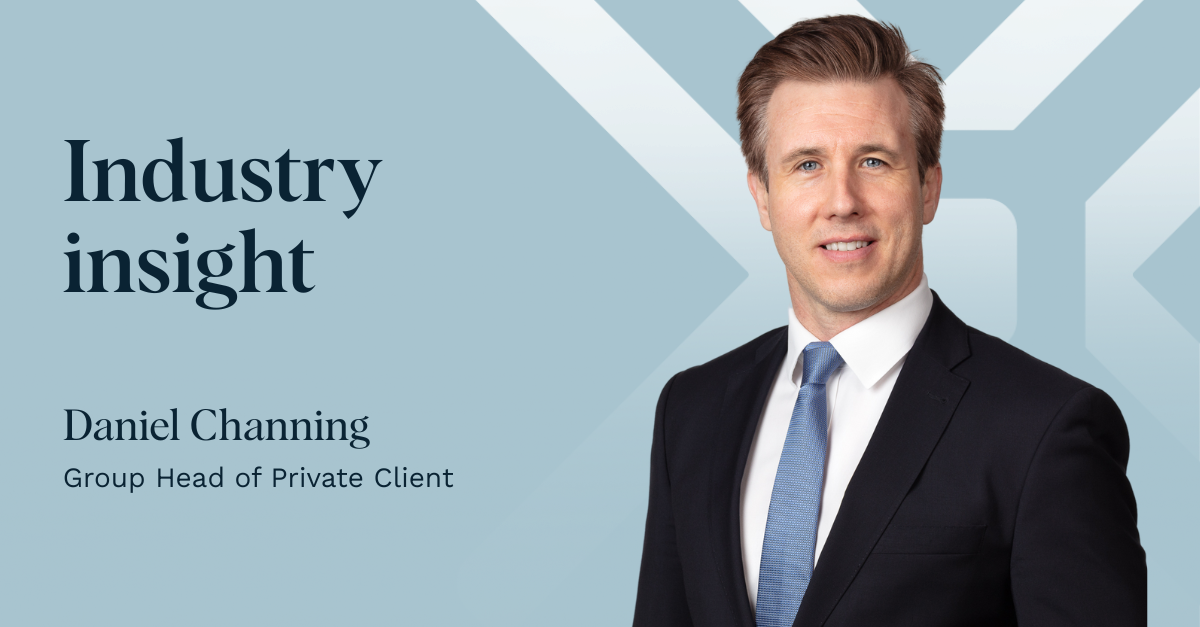In this article, Daniel Channing, Group Head of Private Client looks at how families from the Gulf Cooperation Council (‘GCC’) countries continue to look to both domestic but also international financial centres to support their global wealth and succession structuring needs.
Many families resident in the GCC, continue to hold both domestic and international assets. According to the 2025 UBS Global Family Office report¹ concerns over global geopolitical instability continue to drive families to diversify more than ever.
As many of these ultra-high net worth (“UHNW”) families continue to diversify their wealth, an international structure can be beneficial in supporting that objective; providing governance around these assets and retaining the international diversification risk mitigation benefit in doing so.
Many International Financial Centres (IFCs), including Jersey, offer specific frameworks or wealth structures designed to support families in this regard.
For example, the Private Trust Company (PTC) structure allows a family to establish and operate a family owned and managed arrangement which can hold, manage and administer international asset classes. PTC structures are frequently used to own international business operations, provide beneficial interest in assets to family members resident overseas, to provide ownership governance and close proximity operational management to a broad range of international asset classes. A PTC structure can be controlled and managed by the family yet established and operated in close proximity to the non-GCC assets or family members themselves.
In addition to traditional private client structuring, there continues to be demand for sharia-compliant solutions amongst Middle Eastern families. Many IFCs have both the legal systems but also the service expertise to form and administer sharia-compliant structures and investments, including the issue of sukuk as well as sharia-compliant international investment vehicles. The ability to recognise sharia principles whilst facilitating international investment can be of significant benefit to those families who hold this as being of primary importance.
Thirdly, real estate and infrastructure have long been a favoured asset classes among Middle Eastern investors. It is often important to find a vehicle which is familiar to, and recognised by, advisors, investors, lenders and land registries if such investments are to be made effectively. The range of real estate investment structures available within the key international financial centres include SPV holding companies, joint venture companies, partnerships and Unit Trusts; each with the ability to provide recognised asset ownership whether investing in the UK, Europe, Asia or the US.
Finally, the GCC is seeing a significant increase in UHNW migration to the region. Henley & Partners’ Private Wealth Migration report 2024² reported over 6,700 millionaires had, or will, migrate to the United Arab Emirates alone. For those expats moving to GCC it is often advisable to consider what proportion of assets the family may wish to retain outside of the region for both diversification but also ease of onward global mobility should the family move again in the future. Using an international financial centre can provide a stable and effective centralised hub in which those assets can be held and retained. Most IFCs offer both Trust and Family Investment Company (FIC) solutions to facilitate this kind of centralised asset accumulation.
In many of the above instances, the family or family office are not present permanently in those international jurisdictions and seeking the support of a professional partner to support those structures is key to ensuring their effectiveness. Services such as administration, reporting, office space, management services or technical, regulatory and legal knowledge can all be valuable support to families seeking to continue to diversify their wealth internationally and effectively.
Whitmill provides formation, administration, accounting and management services to international asset holding and succession structures. To find out more please contact Daniel Channing, Group Head of Private Client at daniel@whitmill.com
